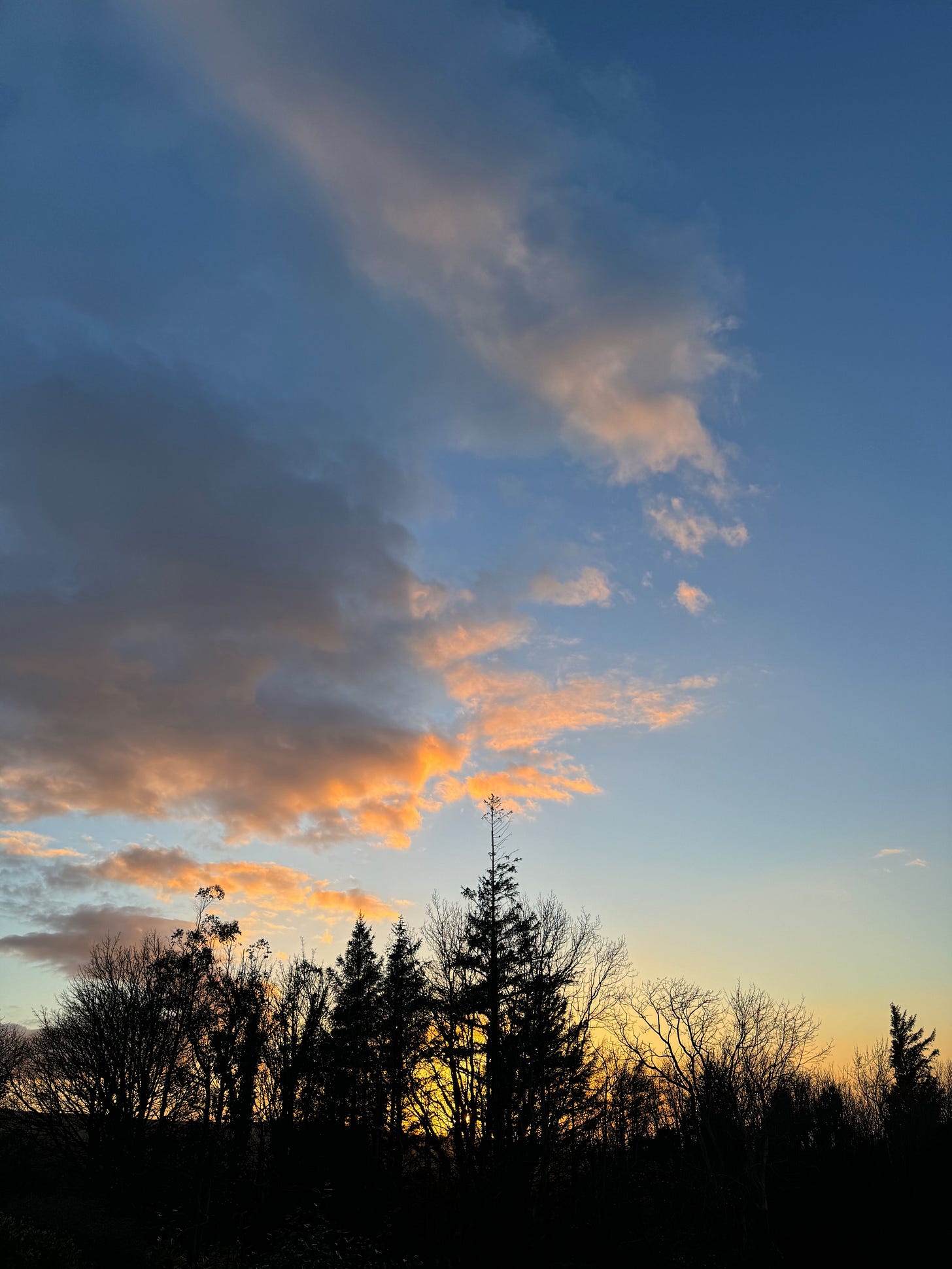Thank God for Bedtimes
On control and the spaces that dissolve it
In a life of lists, notifications, communications, books stacked by my bed, meetings, client sessions, a lively three-and-a-half-year-old, and a husband with a busy paediatric anaesthetic rota, there are so few moments that are not already claimed. Even Chi Kung, which takes me somewhere so precious, can easily become another time block in my day. But at my daughter’s bedtime — after the story, after the songs, when the lights are out and I sit motionless in the dark while she slowly sinks towards sleep — nowhere still appears.
It’s the one place where I am simply there, with nothing to do and nowhere to be, and my mind drifts. And in that drift, things surface.
Our culture underestimates the value of these drift spaces. They seem like wasted time, inefficiency, the place between where we were and where we need to be. And yet it is only in these spaces, where we stop insisting on doing, that the psyche reveals what it has been holding. Drift is not absence; it is the quiet condition that makes revelation possible.
Lately what has surfaced is control.
I’ve noticed how my daughter has begun refusing to follow my lead. She tunes me out when I ask her to brush her teeth, to come to the table, to get dressed. Her imagination has opened wide, her world expanded with a second year at nursery, and she is determined to hold onto that expansion. She will not let me break her play or her dream, and at moments of transition — bath, mealtimes, leaving the house — her refusal erupts into frustration.
And I find myself livid and lost. Why?
Partly, I realise, because I don’t know what to do when I am not in control. It’s unfamiliar territory. Where does my authority reside, if not in control? I feel the confusion directly in my body — the entanglement of control with agency, the gap in my own history being revealed to me by my three-and-a-half-year-old.
Bedtime drifts always show me what’s needed and they are a precious, intimate moment for telling the truth, both inwardly to myself, about myself, and outwards too. I said to my little one recently, “I’m sorry I didn’t give you enough warning when I told you we needed to get ready to go out.” She went quiet — I knew it had landed. And then I felt the bond return. Not through being perfect, but through being willing to face what is here.
And what is here is that my authority and my control are bound up together in a way that no longer works.
I brought this question to my Maturation teacher. She responded: “You are distinguishing between control and power. We have been taught they are the same, but they are not. Control is led by fear. Who even needs to control? Only someone who feels out of control. Flow has no need of control, because in flow no one is there.”
That struck me. No one.
She continued: “Control is the mind’s way of managing fear. It is someone’s way of trying to solve a problem. Freedom is not possible from someone. But if you can distinguish the someone who needs control — if you can really see who she is — she begins to dissolve. And then, from the listening of no one, something else can speak.”
Her words landed like a mirror: that the “someone” in me who clings to control is not abstract. She is a little girl. A little girl who once feared for her life, who stepped across the boundary to the otherworld. That someone is always afraid of loss.
And so the question becomes: can I be with her, rather than trying to manage her? Can I allow her fear to be seen, felt, held — until she no longer needs to lead?
Being with is not passive, nor is it resignation. It is an active willingness to sit in the trembling, to hold the ache without trying to move it on. It asks for patience, humility, and the kind of listening that is itself a form of love.
This is the alchemy of a drift space. Not the act of fixing, but the act of sitting long enough with nothing to do, and zero distractions, that the scaffolding of control becomes visible. Noticing the someone who has needed control all these years. And slowly, patiently, supporting her to loosen her grip.
Which is why bedtime feels sacred to me now. Because in the quiet after the story, when there is no one to be in relationship to, no list to complete, no problem to solve — the someone appears. The someone within me who is always already there. And in that moment of distinguishing her, habitual control dissolves. And all that remains is listening.
Listening so deeply it feels given from somewhere infinite. Listening from no one. And in that space, something larger — creativity, agency, love — can begin to speak.
Perhaps each of us has a drift space somewhere — a quiet corner where control loosens, and something long-carried can finally be seen and set down.



Loved this Emma, these words really spoke to me this morning - thank you xx
this landed deeply x